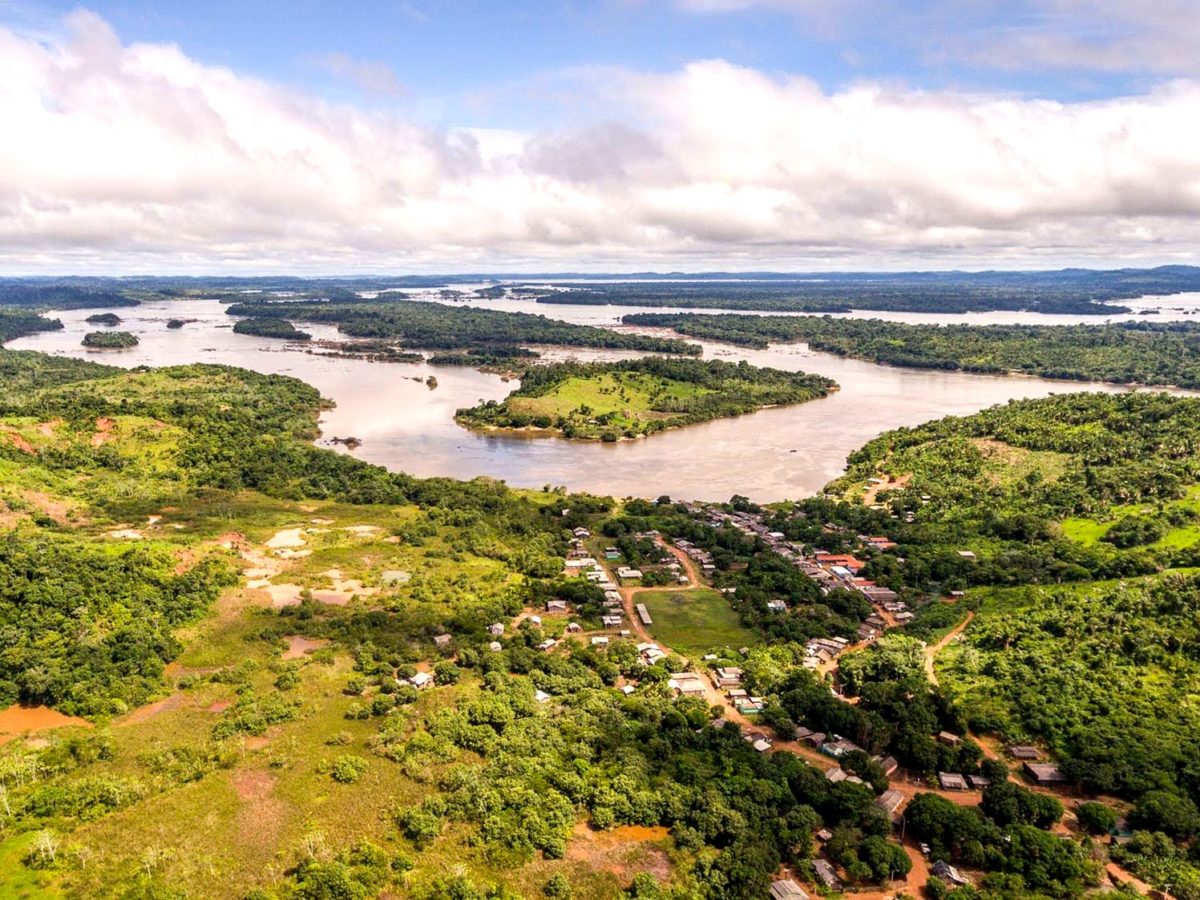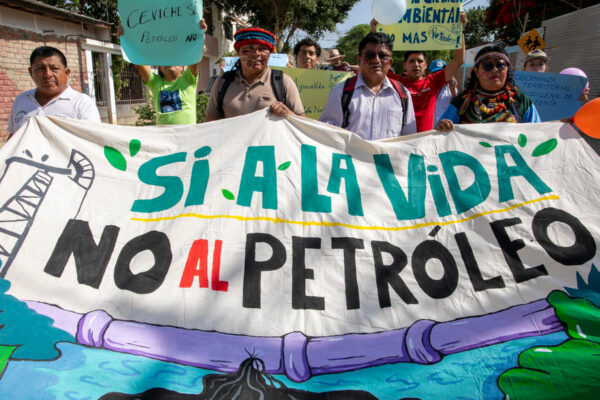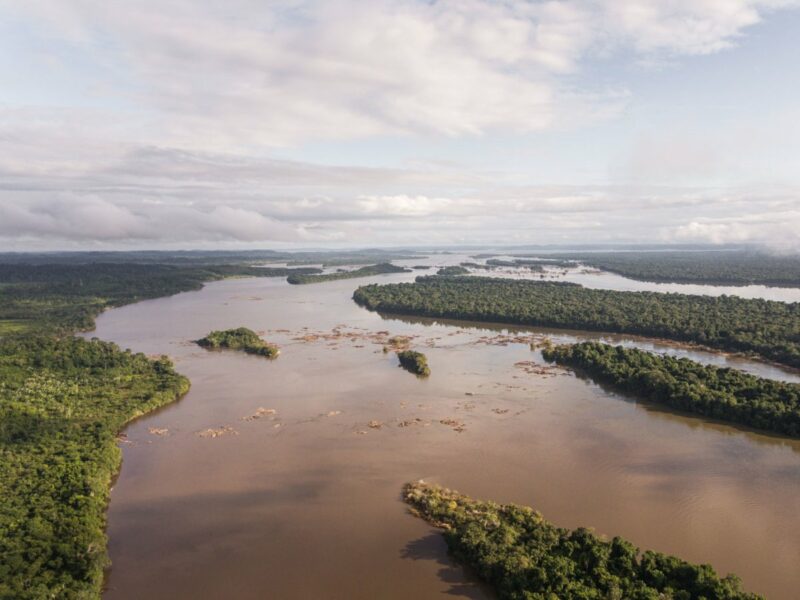In a ruling issued on Monday, April 25, the First Regional Federal Court of Brazil (TRF-1) upheld the suspension of an environmental license for the Volta Grande Project (VGP), a massive gold mining project that the Canadian company Belo Sun Mining Corporation aims to carve into the heart of the Brazilian Amazon. The VGP is projected to be the largest open-pit gold mine in Brazilian history, located only miles away from the Belo Monte mega-dam. If implemented, the VGP would not only further the ecocide of the Volta Grande do Xingu region, a unique and fragile ecosystem in the Xingu River basin, but would also open the doors of a new gold mining frontier in the Amazon to corporate interests.
The TRF-1 ruling is the result of sustained efforts by civil society and institutional allies such as the Public Prosecutor’s Office and the Public Defender’s Office to prevent the installation of Belo Sun’s massive gold mine and to seek redress for the illegal acts committed in the course of the VGP’s environmental licensing process. The project’s environmental license has been suspended since 2017 when an earlier ruling of the same Regional Court understood that Belo Sun and the Brazilian government had failed to respect the right to Free, Prior, and Informed consultation and Consent of Indigenous peoples who would be impacted by the gold mine. Belo Sun has been trying to contest this decision by claiming that necessary consultations were carried out over the past year. However, this week’s ruling confirms that the measures taken by Belo Sun and government agencies still fall short of requirements set forth by national legislation and international standards.
As this victory demonstrates, legal strategies are only part of the broader efforts undertaken by Brazilian and international civil society to resist industrial mining in the Amazon. With support from Amazon Watch and other partners which comprise the Alliance for Life in the Volta Grande, local communities have been strengthening their political organization and insisting on their right to say no to mining on their territories. In early May, the Alliance is organizing a delegation of community representatives, lawyers, and researchers which will join up with leaders from the Tapajós region and with representatives from the Association of Brazil’s Indigenous Peoples (APIB) to denounce the destruction caused by mining, agribusiness, and egregious development projects in the Amazon and demand that European authorities and institutions take urgent action against the massive human rights violations which are taking place on these territories.
The court ruling is a crucial victory for civil society and Amazonian traditional communities at a time in which Belo Sun and other international corporations are taking aggressive steps to expand mining in Brazil. The political strength of corporate mining can be seen in Brazil’s Congress, where Federal Bill 191/2020, which opens up Indigenous lands to mining and other industrial activities, is being fast-tracked in coordination with the Bolsonaro regime, which has consistently pushed for industrial mining in the Amazon. The co-optation of Brazilian institutions by the mining industry makes resistance to industrial mining difficult and dangerous. Land and environment defenders who speak out against mining projects are often criminalized and threatened, as documented in the Complicity In Destruction IV report, recently published by Amazon Watch and the Association of Brazil’s Indigenous Peoples (APIB).
The issue of Indigenous consultation and consent has been at the center of the controversies involving Belo Sun’s mining project. Ever since the environmental licensing process of the VGP began in 2012, the company has systematically sought to silence dissent by adopting two strategies: by excluding impacted communities from consultation processes, and by failing to inform them that they were attending a prior consultation process. Even though the Volta Grande do Xingu is inhabited by myriad Indigenous peoples and traditional communities, only two Indigenous peoples – the Juruna from Paquiçamba Indigenous Land and the Arara of the Arara da Volta Grande Indigenous Territory – were consulted by the company.
Other Indigenous peoples – the Kuruaya and Xipaia – and the traditional communities in the region, which include small landholders, riverine and fishing communities, and families that live off small-scale activities – were ignored or merely informed about the project. A recent technical report issued by the Brazilian Observatory of Consultation Protocols and Free, Prior, and Informed Consent found that the consultation carried out by Belo Sun systematically failed to consult these communities and to respect national and international precedents and legislation on the matter.
In addition to the threats the Volta Grande Project poses, Belo Sun’s impacts and risks stretch far beyond the local communities. In total, the VGP covers 2,400 hectares of Amazonian land, but Belo Sun’s mining interests cover much more – up to 170,000 hectares within the “Três Palmeiras” greenstone belt. Additionally, the Volta Grande do Xingu region is already severely impacted by the Belo Monte dam, which has profoundly impacted the region’s ecosystem. Belo Monte diverts water away from the Volta Grande into a massive artificial canal and on to the dam’s powerhouse, and the drastic reduction in water flow strains the water supply for drinking and irrigation, depletes healthy levels of fish and other aquatic life, and blocks regional species migration, among other impacts. All of this is leading to a systematic environmental collapse, or ecocide, that is making life increasingly unbearable for local communities that rely on the Xingu. As official statements issued by the Public Prosecutor’s Office over the past years have indicated, this now-fragile ecosystem cannot support any other megaprojects, especially if the socio-environmental breakdown is accelerated. Belo Monte itself alerted of the increasing level of risk for this mining project. By further reducing water levels, damming Xingu river tributaries, and operating a dangerous tailings dam at the heart of the Xingu, Belo Sun’s gold mine could be the last straw to ultimately destroy the region’s already vulnerable ecological balance.
Meanwhile, Belo Sun has been operating illegally on other fronts beyond consultation. As recent investigations carried out by researchers from the University of Pará demonstrate, Belo Sun has been illegally acquiring public land within an agrarian reform settlement – the PA Ressaca – in order to install the gold mine. The Brazilian Land Reform Agency (INCRA) has been complicit in this, and the transfer of this public land to Belo Sun is the subject of a lawsuit filed yesterday, April 26, 2022, by the Public Defender’s Office.
This important victory was made possible through sustained pressure and resistance from Indigenous and traditional communities. Now, we call on you to join us and bring attention to the threats posed by Belo Sun alongside a community delegation in May where leaders will take these strategies to European politicians and corporations. We must unite our voices to amplify the major risks to the Amazon and beyond, not just for the people impacted by this project, but for humanity. Let’s start by getting Mining Out of the Amazon and ending this Belo Sun mine before it takes another step forward!














